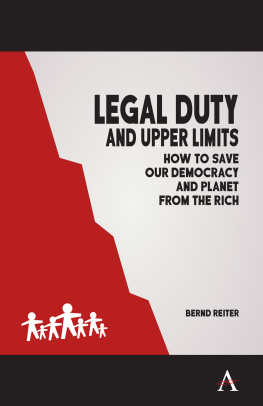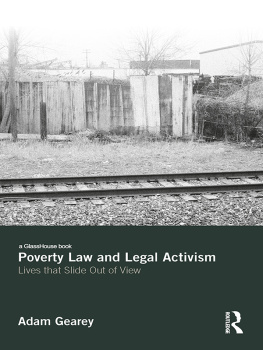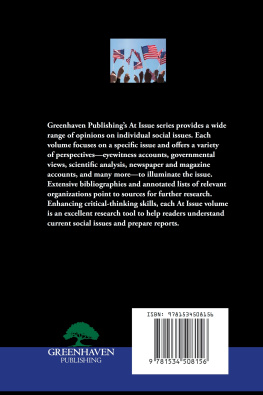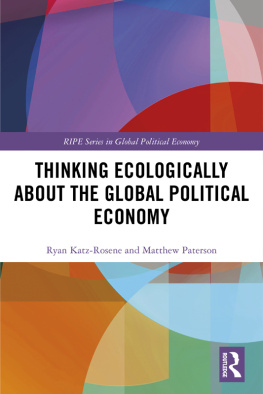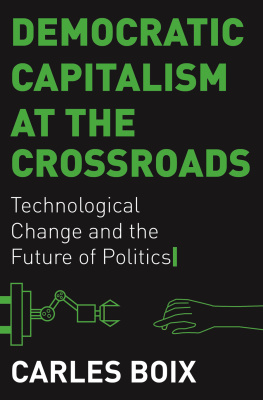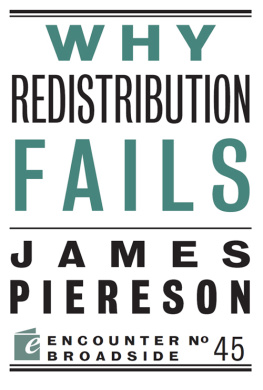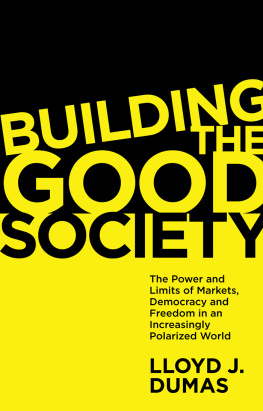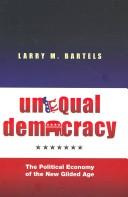Anthem Press
An imprint of Wimbledon Publishing Company
www.anthempress.com
This edition first published in UK and USA 2021
by ANTHEM PRESS
7576 Blackfriars Road, London SE1 8HA, UK
or PO Box 9779, London SW19 7ZG, UK
and
244 Madison Ave #116, New York, NY 10016, USA
Copyright Bernd Reiter 2021
The author asserts the moral right to be identified as the author of this work.
All rights reserved. Without limiting the rights under copyright reserved above,
no part of this publication may be reproduced, stored or introduced into
a retrieval system, or transmitted, in any form or by any means
(electronic, mechanical, photocopying, recording or otherwise),
without the prior written permission of both the copyright
owner and the above publisher of this book.
British Library Cataloguing-in-Publication Data
A catalogue record for this book is available from the British Library.
ISBN-13: 978-1-78527-637-8 (Hbk)
ISBN-10: 1-78527-637-9 (Hbk)
ISBN-13: 978-1-78527-640-8 (Pbk)
ISBN-10: 1-78527-640-9 (Pbk)
This title is also available as an e-book.
In this short book, I propose new ways of thinking about, and solving, our current political, economic, and ecological problems. I will show that adopting upper limits to wealth and income, replacing elections with local direct democracy and legal duty, and replacing welfare and redistribution policies with predistribution and reparations promises new solutions to political apathy, discontent, manipulation, economic inequality, and looming ecological disaster.
I perceive the policy suggestions I formulate here as inevitable if we seek to protect and restore justice, fairness, equal opportunity, and liberty, while also securing ecological soundness and keeping free, if limited, markets and market competition. In fact, I cannot perceive of other ways to achieve these goals together. While currently utopian, the proposals I advance and elaborate here offer hope and possibilities and they explicitly stand up against the widespread mantra that there are no alternatives. This book will show that our collective choices are not reduced to capitalism versus socialism. In fact, both capitalism and socialism have been unable to achieve collective goals while maintaining liberty and ecological soundness. Both are undesirable.
This book will quickly move from an analysis of the current crises of political alienation and manipulation, of unacceptable economic inequality and unfairness, and of the looming ecological disaster, in will elaborate some of the most likely implications if the policies I suggest were implemented. The Conclusion, finally, offers some reflection on the limitations of this books and possible ways forward.
The remainder of this chapter is dedicated to introducing the crises our world faces today and elaborating the idea of paradigms in our thinking and research. I will conclude this chapter with a call to challenge current paradigms and replace them with new ones, as our old ways of looking at, perceiving, and analyzing the world has proven unable to develop solutions and proposals that stand up to the tremendous tasks ahead of us.
Crisis
Crisis, according to Thomas Kuhn (1996), leads to scientific revolutions at a point when normal science is no longer able to produce the kind of knowledge that addresses the problems at hand. This is the moment we find ourselves in. Normal (social) science, operating under the paradigms of representative democracy, capitalism, or socialism is unable to capture the problems we face and, as a result, is incapable of producing possible solutions. If science does not offer any solutions to our multiple problems, then our everyday discussions and debates about politics and markets tend to follow suit, as science is supposed to operate as a vanguard for everyday knowledge. We need a shift in paradigms.
Why? You might ask. Here is why: Our democracies are losing their appeal to many voters. The American Congress has had an approval rate of under 30 percent over the past 10 years. In fact, some 75 percent of Americans disapprove of the way political representatives are doing their job. This disapproval has remained constant under changing parties dominating Washington, DC. In many of the established European democracies, mainstream parties are losing more and more supporters. The same is true for many of the less established democracies of Latin America and in parts of Asia. Authoritarian rulers, many of whom we have elected into power, are undermining some of the core values and norms of democratic rule in many countries. Political scandals aboundand yet we dont seem to have good answers to the questions and challenges these problems pose.
Parallel and connected to this democratic crisis is another one, equally severe: our economies have let to tremendous, unacceptable, inequalities in wealth. The 2,000 richest people on our planet own about the same amount of wealth as the rest of us. More precisely, the top 1 percent of people own 50 percent of all assets. The world now counts on some 17 million millionairespeople whose net worth equals or exceeds US $1 million. Why is that a problem and is that really a crisis, you might wonder? It is. Because what rich people can do, which sets them apart from average people, is that they can buy opportunities for themselves and their children. They can send their children to the best private schools and universities. They can provide their offspring with start-up funds, so they can start businesses. They can invest in the stock market and let their money earn their income, multiplying their wealth without any additional effort. Wealth bears more wealth. We are facing a future of a new, global, aristocracy, one that does not have to play by the same rules we all have to abide by because they can buy their way out.
Worse. Once a group of people has been able to create advantages for themselves, there is no catching up to them. If we do nothing, then we will allow the deep division already separating the rich from the rest of us to consolidate. They will win in almost all competitive markets we have to enter during our lifetimes, because they enter them endowed with assets. Their financial capital can buy them other capitalssocial, cultural, educational, and residential. Average people already find it very difficult to secure a place in an Ivy League university, to find decent housing, or to get elected into political office. All of these positions are already reserved for the rich. If we do not act now, the world will become more divided; political careers will be reserved even more for the rich; and all the nice places to live will become even more exclusive. Our current economic toolboxes do not contain the necessary tools to fix distortions and manipulations that wealth can achieve, thus making the whole system extremely unfair. If we do nothing, fairness and equal opportunity will be things of the past.
The third crisis we all face is more obvious to most. It is the ecological crisis. If we do nothing, then our children will live in a much-impoverished world with regard to species diversity. More than half of the worlds vertebrates have already died out. It will also be a world of increasingly severe storms, droughts, floods, and disasters. Some parts of the world, particularly coastal areas and regions that do not rise high above current sea levels, will be swallowed by the oceans, while all of us will face difficulties finding enough clean water and food. If we do nothing and simply keep going as we have, then our grandchildren might not have a world to live in at all. We are systematically destroying our planet.

